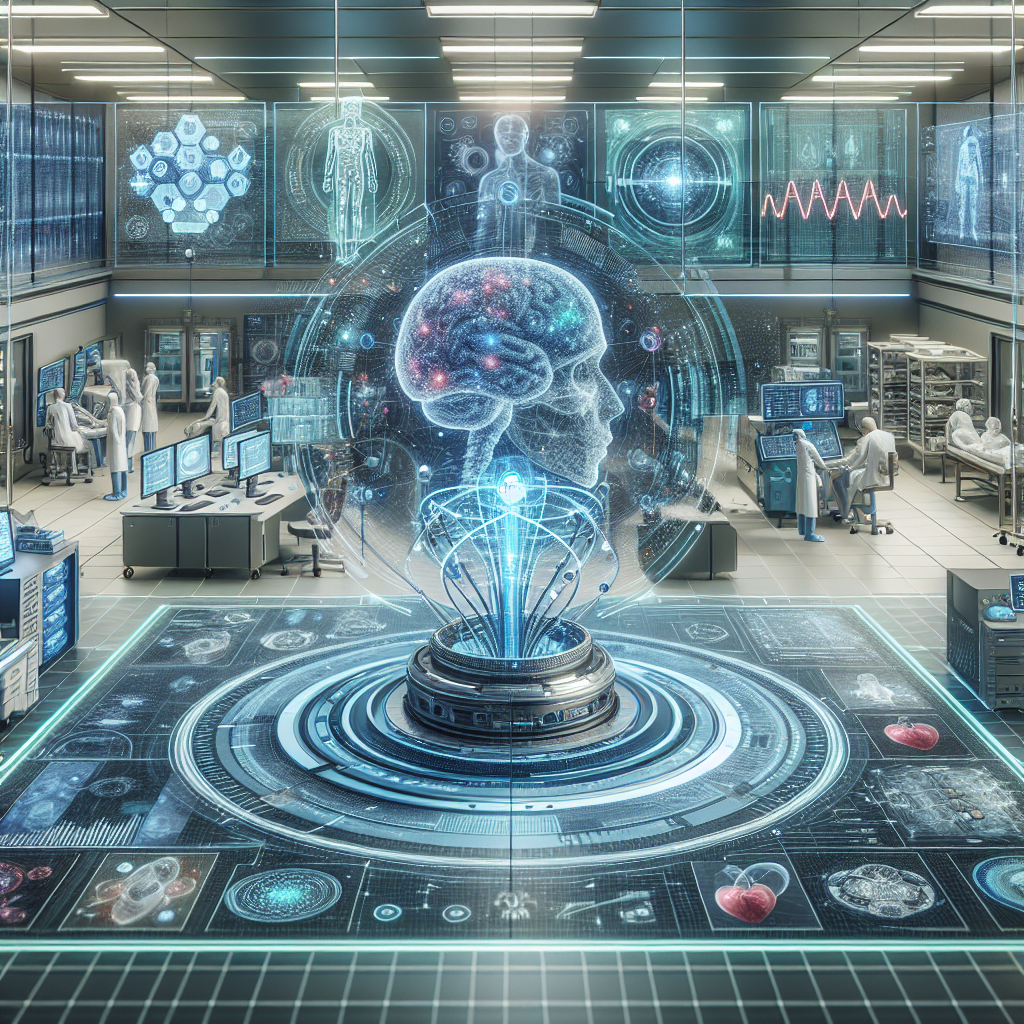Artificial General Intelligence (AGI) is a term that refers to a type of artificial intelligence that is capable of performing any intellectual task that a human can do. While current AI systems are specialized in particular tasks, AGI aims to replicate the broad cognitive abilities of humans, including reasoning, problem-solving, and learning.
In recent years, AGI has gained significant attention in the healthcare and medicine industry as a potential game-changer. The potential applications of AGI in healthcare are vast, ranging from improving diagnostics and treatment to revolutionizing drug discovery and personalized medicine. In this article, we will explore the role of AGI in healthcare and medicine and discuss its potential impact on the industry.
AGI in Healthcare and Medicine
1. Diagnostics and Treatment
One of the most promising applications of AGI in healthcare is in the field of diagnostics. AGI systems have the potential to analyze vast amounts of patient data, including medical records, imaging scans, and genetic information, to accurately diagnose diseases and predict outcomes. By leveraging machine learning algorithms, AGI systems can identify patterns and correlations in data that are beyond the capabilities of human clinicians, leading to more accurate and timely diagnoses.
In addition to diagnostics, AGI can also play a key role in treatment planning. By analyzing patient data and medical literature, AGI systems can recommend personalized treatment options based on individual patient characteristics and medical history. This can lead to more effective and efficient treatment plans, ultimately improving patient outcomes.
2. Drug Discovery
Another area where AGI has the potential to revolutionize healthcare is in drug discovery. Developing new drugs is a time-consuming and costly process that often involves trial and error. AGI systems can accelerate the drug discovery process by analyzing vast amounts of biological data to identify potential drug candidates and predict their efficacy. By using machine learning algorithms, AGI systems can also optimize drug dosages and treatment regimens to maximize effectiveness and minimize side effects.
3. Personalized Medicine
Personalized medicine, which aims to tailor medical treatment to individual patients based on their genetic makeup, is another area where AGI can make a significant impact. By analyzing genetic data and medical records, AGI systems can identify genetic markers that are associated with specific diseases and predict individual responses to treatments. This can lead to more targeted and effective therapies, ultimately improving patient outcomes and reducing healthcare costs.
4. Healthcare Administration
Beyond clinical applications, AGI can also be used to improve healthcare administration. AGI systems can analyze administrative data to identify inefficiencies in healthcare systems, optimize resource allocation, and improve patient outcomes. By automating routine administrative tasks, AGI can also free up healthcare professionals to focus on patient care, leading to improved quality of care and patient satisfaction.
Frequently Asked Questions (FAQs)
Q: What is the difference between AGI and other types of artificial intelligence?
A: AGI is a type of artificial intelligence that aims to replicate the broad cognitive abilities of humans, including reasoning, problem-solving, and learning. In contrast, other types of AI, such as narrow AI and machine learning, are specialized in particular tasks and lack the general cognitive abilities of AGI.
Q: How is AGI being used in healthcare and medicine?
A: AGI is being used in healthcare and medicine to improve diagnostics and treatment, accelerate drug discovery, personalize medicine, and optimize healthcare administration. By analyzing vast amounts of patient data and medical literature, AGI systems can identify patterns and correlations that are beyond the capabilities of human clinicians, leading to more accurate diagnoses and personalized treatment plans.
Q: What are the challenges of implementing AGI in healthcare?
A: One of the main challenges of implementing AGI in healthcare is the lack of standardized data formats and interoperability between different healthcare systems. In order for AGI systems to effectively analyze patient data, healthcare organizations need to ensure that data is structured, standardized, and easily accessible. Additionally, there are concerns about patient privacy and data security when using AGI systems to analyze sensitive medical information.
Q: How can healthcare professionals prepare for the integration of AGI in healthcare?
A: Healthcare professionals can prepare for the integration of AGI in healthcare by staying informed about the latest developments in artificial intelligence and machine learning, participating in training programs and workshops on AI technologies, and collaborating with data scientists and AI experts to develop and implement AGI solutions in clinical practice. By proactively engaging with AI technologies, healthcare professionals can ensure that they are well-equipped to leverage the potential benefits of AGI in healthcare.
In conclusion, AGI has the potential to be a game-changer for healthcare and medicine by improving diagnostics and treatment, accelerating drug discovery, personalizing medicine, and optimizing healthcare administration. While there are challenges to implementing AGI in healthcare, such as data standardization and privacy concerns, the potential benefits of AGI far outweigh the risks. By embracing AGI technologies and collaborating with AI experts, healthcare professionals can harness the power of AGI to revolutionize the industry and improve patient outcomes.

